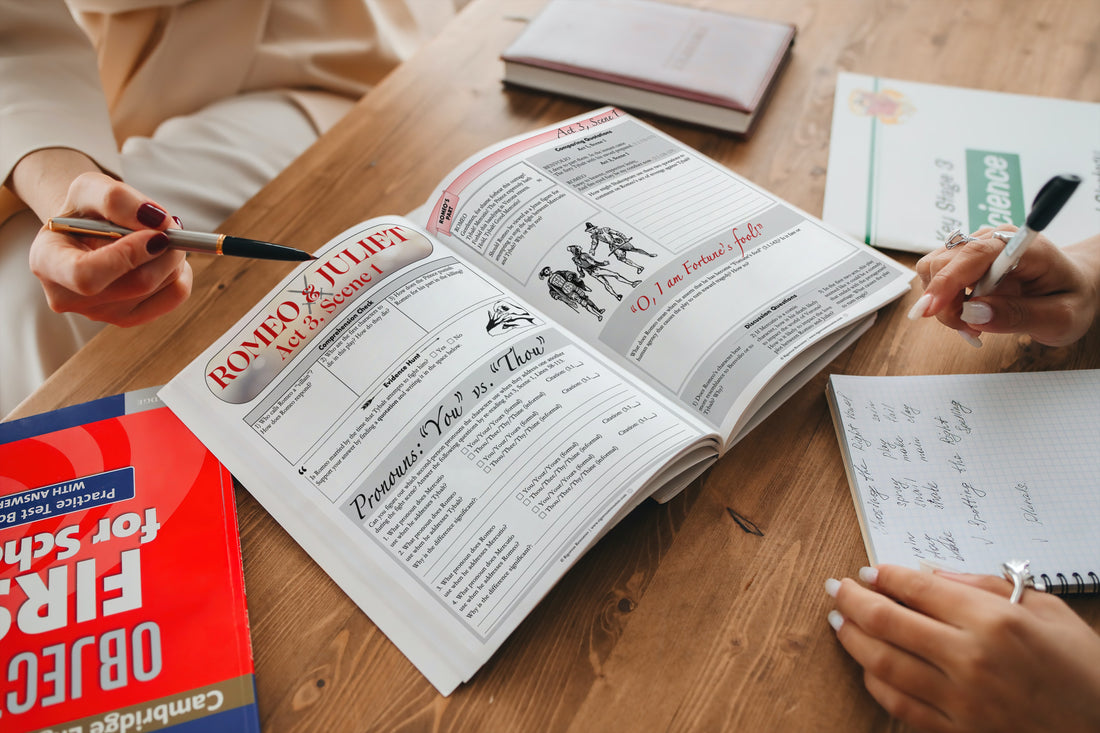
What does Juliet mean when she asks the famous question, "Wherefore art thou Romeo?" When tackling this question in the classroom, teachers should start be asking what the word "wherefore" means. The answer, of course, is “why.” But what does Juliet mean when she asks, Why are you Romeo?
Juliet is asking about why her beloved has to carry a name which makes him an enemy of her family. While Juliet's initial question may focus on Romeo's first name, her subsequent remarks reveal that her real concern is with his last name: “Montague.” She continues thus:
’Tis but thy name that is my enemy.
Thou art thyself, though not a Montague.
What’s Montague? It is nor hand, nor foot,
Nor arm, nor face. O, be some other name. (2.2.41-44)
Juliet speaks the famous lines,
Thus, although Juliet initially invokes her beloved's first name, what she is really dwelling on is his surname, and the fact that he’s a member of the rival household: the Montagues. Names are a central theme in this play. They serve as a symbol not only for a person's ties to family but also for a person's position within a complex world of family allegiances and social hierarchies.
After asking "wherefore art thou Romeo," Juliet entreats her beloved to renounce his family name. And she asserts that she'd be willing to do the same:
In this play, a person's surname — or family name — stands for their social identity in a public world. On a symbolic level, the young protagonists express a willingness to relinquish their social identities — and perhaps even their families — in order to pursue a romantic partnership rooted in mutuality and equality. They wish to cast off their surnames so they can create a private world where they’re not constrained by the social constructs of the public world: family rivalries, class hierarchies, gender norms, and so on.
 Juliet asserts, “I’ll no longer be a Capulet”; and Romeo quickly replies, “Henceforth I never will be Romeo” (2.2.39, 55).
Juliet asserts, “I’ll no longer be a Capulet”; and Romeo quickly replies, “Henceforth I never will be Romeo” (2.2.39, 55).
When teaching this play, I ask students: What would it mean for a person to relinquish their family name: their connection to family, their position within society, their social identity? Can they imagine a situation in which they might be willing to do that? What would be lost? What would be gained?

Teach It Today!
If you're a teacher who'd like to explore this topic with your students, remember to check out my Complete Teaching Unit on Romeo and Juliet. The unit is loaded with worksheets, discussion questions, and writing prompts which focus on key textual details from every single scene of Shakespeare's Romeo and Juliet!
Save yourself hundreds of hours of prep time while motivating your students to be highly engaged. Check out this Complete Teaching Unit on Romeo and Juliet!!


